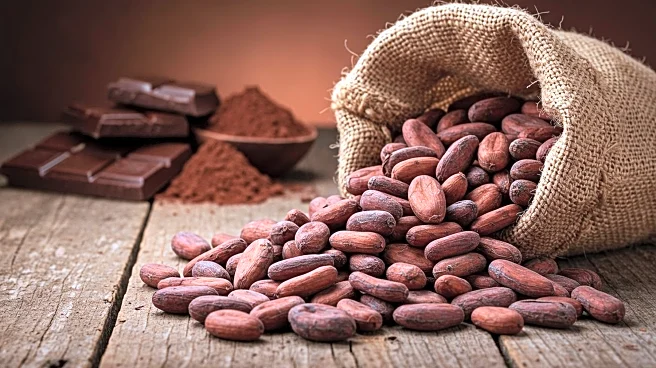What's Happening?
Ivory Coast's cocoa grind experienced a significant drop of 31.2% year-on-year in July, reaching 39,301 metric tons, according to data from the exporters' association GEPEX. This decline is attributed to poor bean quality and low volumes of the mid-crop. The total grind from the start of the 2024/25 season in October until the end of July was 515,055 tons, marking a 4% decrease compared to the same period last season. The grinding process is crucial for transforming cocoa beans into chocolate, and the reduction in grind volume could have implications for chocolate production globally.
Why It's Important?
The decline in cocoa grinding in Ivory Coast, the world's largest cocoa producer, could have significant repercussions for the global chocolate industry. Lower grind volumes may lead to reduced chocolate production, potentially affecting supply chains and increasing prices for consumers. This situation highlights the importance of bean quality and crop volume in maintaining stable production levels. Stakeholders in the chocolate industry, including manufacturers and retailers, may need to adjust their strategies to cope with potential shortages and price fluctuations.
What's Next?
If the trend of declining cocoa grind continues, it could prompt industry stakeholders to seek alternative sources or invest in improving bean quality and crop yields. Exporters and manufacturers might explore technological advancements or partnerships to enhance production efficiency. Additionally, consumer demand for chocolate could drive efforts to stabilize supply chains and ensure consistent product availability.
Beyond the Headlines
The decline in cocoa grind also raises questions about sustainable agricultural practices and the long-term health of cocoa crops. Addressing issues such as soil quality, pest management, and climate change impacts could be crucial for ensuring the resilience of cocoa production in Ivory Coast and other key regions.









